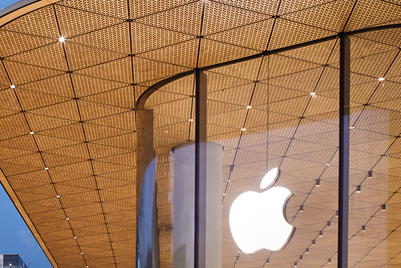
Although investors, analysts and fans alike have been prepared for this moment since Jobs stepped down as CEO of Apple in August, the tech world is still asking, “What will happen to Apple after Steve?”
“While Apple is losing its visionaire, its success did not rely purely on Jobs. His vision was perfectly understood and executed throughout the company. The core team will have the discipline and understanding to continue his legacy,” Gregory Birge, CEO of F5Digital Consulting told Campaign. Birge was Apple's head of mobile product marketing for Europe from 2001 to 2005 where he was placed in charge of launching the first generation of iPods. He was later promoted to lead iTunes Europe.
When Jobs stepped down from his CEO role at Apple, handing the reins to Tim Cook, analysts agreed that the team in place at Apple would be able to keep the company’s culture of excellence going.
"Investors are very comfortable with Tim Cook even though Jobs has been a driver of innovation and clearly an Apple success. Tim has shown Apple can still outperform extremely well when he's been acting as CEO," Cross Research analyst Shannon Cross told Reuters just after Jobs’ resignation.
But it is that indefinable genius Jobs brought that has given Apple its leadership position that analysts and fans fear will be irreplaceable.
“In just the last four years, Jobs has reinvented the smartphone and the tablet computer, and previously he had also changed the music industry dramatically with the introduction of the iPod and iTunes,” pointed out Ovum’s chief telecoms analyst Jan Dawson in a statement.
The risk, added Dawson, lies in Apple’s continued reliance on ‘hero’ devices in its two major product lines – iPhone and iPad – with an annual release cycle. “If one of those devices ever turns out to be a dud, it will put a huge dent in the company's revenues and margins.”
Another concern will be if Apple’s fans, who have a near-religious connection to the brand (according to research by brand expert Martin Lindstrom), will be able to accept an Apple without Jobs.
Apple’s fanbase is crucial to its brand’s marketing strategy. Former Apple senior director of worldwide product marketing Bob Borchers pointed out that when the first iPhone was launched, all Apple did was to release a single spot ad during Superbowl. “The bloggers and Apple’s fanbase did the rest,” he told The Edge Malaysia.
“The best way Apple can reassure its fans is to remain innovative. Keep anticipating customer lifestyle needs and keep the flow of game-changing products and services flowing,” said David Ketchum, president, Asia-Pacific of Bite Communications.
Fan expectations will be exceedingly high during this period, commented Birge. “I think they will glorify Apple even more, and yes, will be very demanding of Cook. However, Tim is not Steve and change will have to be accepted.”
Thomas Crampton, Asia-Pacific director of social media for Ogilvy & Mather, met Steve Jobs briefly during his career as a journalist with the New York Times: “As the press conference wound down, I had an interesting side-conversation with Jobs, which never made it into the article on what drives Apple in meeting consumer's needs. ‘It is all a balance between simplicity and freedom,’ Jobs said. ‘Freedom allows the consumer to have infinite choice, but simplicity inspires action.’ Apple, said Jobs, comes down on the side of simplicity."
While buying an Apple product does equate to a loss of freedom, the value they deliver makes up for it, commented Crampton. “The question comes as to whether an Apple without Jobs has the ability to overturn another industry.”
Crampton doesn’t perceive fan enthusiasm waning for Apple as long as the innovation continues. The challenge for Apple, he said, will not come this year or next – but in five years. “Apple has a great line-up of products to keep the company plenty busy (and profitable) for the near term.”




.jpg&h=268&w=401&q=100&v=20250320&c=1)




